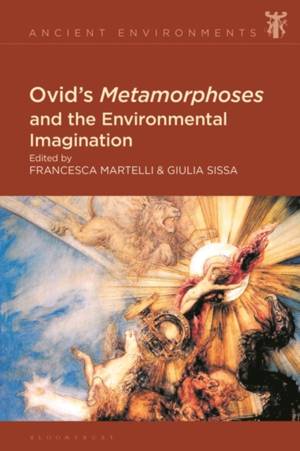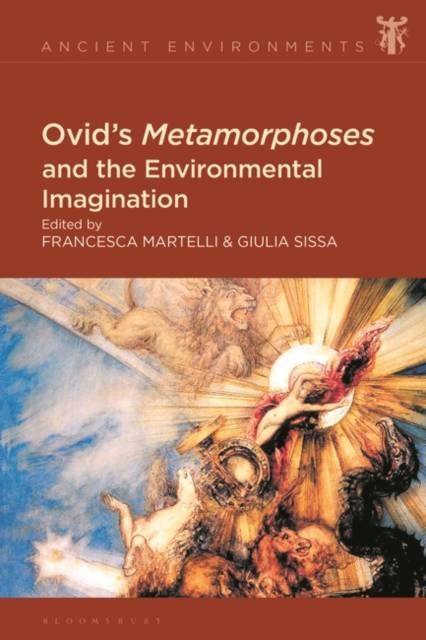
- Afhalen na 1 uur in een winkel met voorraad
- Gratis thuislevering in België vanaf € 30
- Ruim aanbod met 7 miljoen producten
- Afhalen na 1 uur in een winkel met voorraad
- Gratis thuislevering in België vanaf € 30
- Ruim aanbod met 7 miljoen producten
Zoeken
Ovid's Metamorphoses and the Environmental Imagination
€ 203,95
+ 407 punten
Omschrijving
This book positions Ovid's Metamorphoses as a foundational text in the western history of environmental thought. The poem is about new bodies. Stones, springs, plants and animals materialize out of human origins to create a world of hybrid objects, which retain varying degrees of human subjectivity while taking on new physical form. In bending the boundaries of known categories of being, these hybrid entities reveal both the porousness of human and other agencies as well as the dangers released by their fusion. Metamorphosis unsettles the category of the human within the complex ecologies that make up the world as we know it.
Drawing on a range of modern environmental theorists and approaches, the contributors to this volume trace how the Metamorphoses models the relationship between humans and other life forms in ways that resonate with the preoccupations of contemporary eco-criticism. They make the case for seeing the worldview depicted in Ovid's poem as an exemplar of the 'premodern' ecological mindset that contemporary environmental thought seeks to approximate. They also highlight critical moments in the history of the poem's ecological reception, including reflections by a contemporary poet, as well as studies of Medieval and Renaissance responses to Ovid.Specificaties
Betrokkenen
- Uitgeverij:
Inhoud
- Aantal bladzijden:
- 264
- Taal:
- Engels
- Reeks:
Eigenschappen
- Productcode (EAN):
- 9781350268944
- Verschijningsdatum:
- 24/08/2023
- Uitvoering:
- Hardcover
- Formaat:
- Genaaid
- Afmetingen:
- 156 mm x 234 mm
- Gewicht:
- 544 g

Alleen bij Standaard Boekhandel
+ 407 punten op je klantenkaart van Standaard Boekhandel
Beoordelingen
We publiceren alleen reviews die voldoen aan de voorwaarden voor reviews. Bekijk onze voorwaarden voor reviews.







